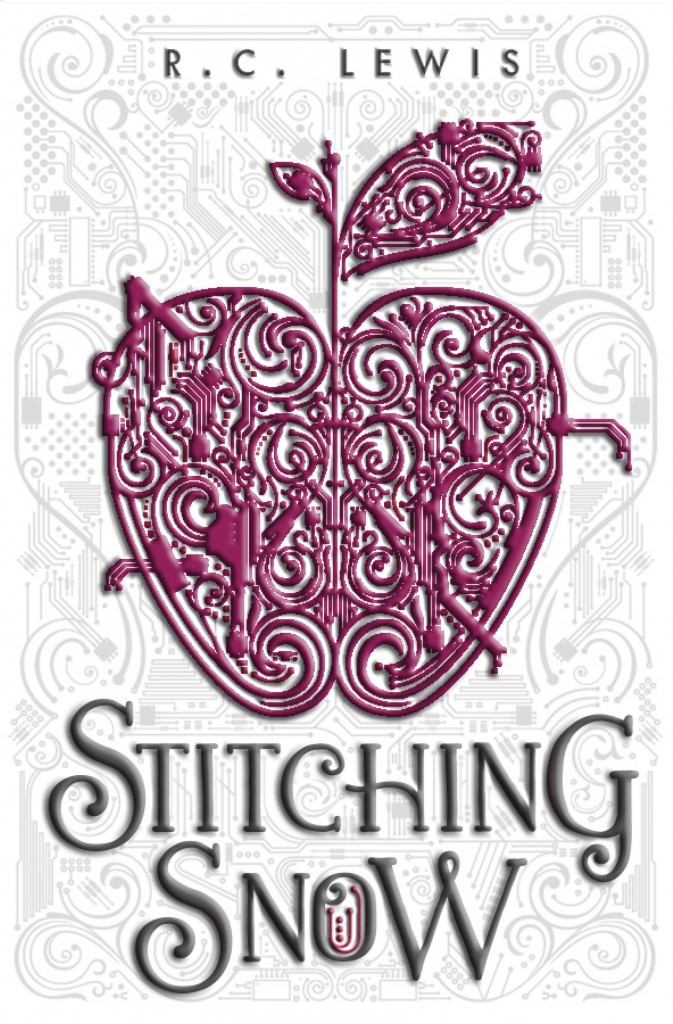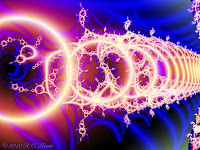YA fiction
Wherein I Have a Cover
First, a note that it’s time for me to get back into blogging, so keep an eye out here as well as Tumblr to hear all the news and random musings.
If you follow me on any kind of social media, you already know this, but here it is for the record: my cover for Stitching Snow!
The awesome people at YABooksCentral hosted the official reveal, and the giveaway is ongoing. Be sure to visit and enter.
Speak up:
3 comments| TAGS:
cover image, giveaway, Stitching SnowA Teen Type Missing in YA Lit (Thank Goodness!)
Young adult novels (contemporary and otherwise) manage to fit a lot of different types of teenagers. Artsy types. Bookish types. Sporty types. Loner types. Popular types. Aggressive types. Passive types. Sometimes characters who are more than one at the same time.
I always appreciate the variety. I like finding novels with characters similar to students who don’t seem to be represented so much in pop culture. A particular type stood out to me this week, though, and I realized I don’t recall ever reading a character that quite matched up with it.
The whiners.
And please, my fellow YA authors, don’t feel any need to change that.
I’m not talking about teens who get whiny now and then. That happens, both in fiction and in life. Part and parcel of being not-quite-kid, not-quite-adult. No, I’m talking about teens who do nothing. But. Complain.
All. Day. Long.
I can barely take it for an hour at a time with those students. If I had to read it in a book, that book would get put down and never picked up again.
And from a math teacher standpoint, let me just say that complaining that it’s hard and you don’t get it before I’ve even started explaining anything isn’t conducive to learning. It doesn’t endear the student to their more open-minded classmates, either.
If you know someone like this in real life, please find a way to rehabilitate them. When you find a successful method for doing so, drop me a line.
I could use the help.
Speak up:
1 commentSlangifying Your Story
In the realm of YA writing in particular, slang of any kind is tricky, tricky business.
Slang and common expressions can make a teen voice feel more authentic. As someone who spends every workday listening to teenagers talk, I guarantee they’re not pulling exclusively from an official dictionary.
Then again, slang is—by its nature—fleeting. A few bits and pieces work their way into the long-term vernacular, but most are solidly dated. Just think about “groovy,” “bodacious,” and “fresh.” You just had certain decades flash through your mind, right? Maybe that’s a good thing. Maybe that instant association is what you need.
More often, I’m thinking that’s not a good thing.
Let’s go back to my students for a minute. There are some who spout a near-constant stream of “totes obvi” and “YOLO.” (The one who says YOLO the most keeps doing it out of context. I’m not sure he really gets it. Or he likes to be annoying.) And here’s the thing about super of-the-moment phrases. It only takes about two minutes for the kids to sound like they’re trying too hard.
And it’s even easier for an author to sound the same way.
So how do you deal with it? Stick to the more long-standing forms of teen-talk? Use a strict rule like one super-trendy term per fifty pages? Only let a side character use them, make it their “thing”?
Honestly, I don’t know. I’m curious what you’ve found works, either from a writing or reading perspective.
I tend to work around it by writing science fiction and making up my own slang. Mindy McGinnis thinks I’m good at it. Hopefully others will agree.
Speak up:
2 commentsThe Real Teens of YA County
Hopefully this is preaching to the choir. A lot of YA writers are great about having textured, nuanced teen characters. Still, sometimes the cast is filled with an overabundance of “the regulars.”
The jock. The cheerleader. The nerd. The nondescript average teen.
Wait, there’s no such thing as that last one. Never in all my classrooms have I come across one of those. They show up in novels, though. Weird, that. It got me thinking about what I have seen. Here’s a sampling of students I have taught or am teaching.
Students who weren’t supposed to live past the night they were born.
Students whose parent is world-famous.
Students whose entire family is deaf (and sometimes that student is the most hearing among them).
Students who excel in a sport and qualify as a “geek” in another area (math, music, theater, …).
Students with such a mix of half- and step-siblings, there are six or seven different last names in their household.
Students whose bodies could break all too easily.
Students with the most spectacular cases of ADHD.
Students who are in foster care because their parents are in jail.
Students who aren’t supposed to have much of a life expectancy.
Students who are quiet for a reason … and very NOT quiet when you get them going. (By the way, this group is never, EVER boring.)
I could go on if I let myself, but you get the idea.
Some of those I see in novels. Some not so much. (Of course, I’m not as super-wide-read in some genres of YA as I’d like to be.) Some only when it’s the “issue” of the story. Maybe some things could be incidental to the plot. The MC’s best friend is in a foster family, but that’s not the point of the story.
Or maybe that’s just me and my preferences. Maybe some people would read that and keep waiting and waiting for that fact to become relevant.
What do you think? Are there certain types of teens you’d like to see pop up more in YA literature?
Speak up:
2 commentsMy YA Manifesto
I’ve been thinking about writing a post like this for months, ever since my From the Write Angle blog-mate J. Lea Lopez wrote her Erotica Writer’s Manifesto. Finally, it’s time.
Every once in a while, I run across someone who thinks writing Young Adult novels is easier than writing for grown-ups. That YA work isn’t as complex, doesn’t go as deep or dark, or is otherwise somehow “lesser” than its adult counterparts.
I’ve even heard it once or twice from other YA writers. They write YA because it’s not as demanding—they don’t think they could cut it as a writer for adults. Or they write YA because it’s a stronger area in a struggling market.
I am an unabashed writer of young adult literature. I chose it before I knew anything about publishing markets, before I knew anything about novel-writing in general (other than my opinions as a reader). So, here’s my own personal manifesto as a YA writer, the standards I’ll hold myself to.
- I will write YA only as long as I love it—reading it, writing it, talking about it.
- I will respect my readers. Young does not mean stupid.
- I will avoid Stupid MC Syndrome at all costs.
- I won’t be afraid of vocabulary, but will also keep it authentic.
- I will write female characters with interesting quirks, strengths, and weaknesses.
- I will write male characters who are more than utter hotness. (This does not preclude potential hotness … but yeah.)
- Combining the above, when characters fall for each other, it will be for reasons other than instinctive attraction or destiny.
- I will generally keep adult characters out of the way, but will not operate under the presumption that all grown-ups are stupid. Teens know that only some of us are stupid.
- I won’t be afraid of complexity—complex situations for my characters, complex issues to tackle. Teens’ lives are complex. They deal with it.
- I will hope my readers learn something from my novels.
- I will not dictate what that “something” they learn should be. I hope it varies from person to person.
- I will keep in mind that even teens who think they have no personality and aren’t special show the truth in their actions. Even the quietest teen is interesting if you really watch.
There should probably be a few more items in this list, so perhaps I’ll add to it over time.
What do you think, YA writers? What do you strive for (or strive to avoid) when writing in our chosen category?
Speak up:
6 commentsBook-Nerds vs. Science-Geeks
Jul
11, 2011 |Filed in:
audience,fantasy,geeks,nerds,science fiction,speculative fiction,YA fictionThis is one that’s been on my mind for a while. While labeling individuals is rarely productive, I often ponder certain categories or types (recognizing the variability within any given category). So first, let’s define our terms.
A book-nerd is pretty straightforward—someone who loves books. They devour books, possibly spending more on them than they do on food. Generally, book-nerds are somewhat eclectic in their tastes, sampling everything from literary fiction to romance to horror to non-fiction. They worship the written word.
A science-geek (and for the sake of this post, I’m going to include math-geeks, even though they don’t always coincide) is analytical, loves technology, and wants to know how everything around them works. They are often (but not always) big readers as well, possibly to the same extend as many book-nerds.
In fact, there is some overlap between the two groups. I know some science-geeks who are definitely book-nerds. What I want to talk about is another subset of the geeks—those who do read, but don’t qualify as book-nerds.
These are people who read voraciously, but probably don’t have much interest in Shakespeare, Dickens, or anything else considered classic. Probably not much in the field of literary fiction, either. Doesn’t mean they don’t appreciate literary qualities, but more often than not, they’ll be reading (you guessed it) science fiction and fantasy.
What’s important to these readers? For one thing, consistency in all aspects. Heaven help you if you commit a continuity error. For another, worlds and characters worth coming back to—thus the ubiquitous serial nature of the genres. They also want what every other reader wants—a good story with proper development.
It seems like the YA publishing industry is dominated by book-nerds. That’s okay, and probably as it should be. After all, they need to make their living on books, so it’s best if they love them, preferably in wide variety. But sometimes I wonder if even agents who rep the speculative fiction genres are part of the book-nerd/science-geek overlap and don’t necessarily get the straight-up science-geek readers.
It’s kind of like the film industry. Traditionally, a sci-fi or fantasy movie will only get respect for effects, makeup, costumes, and maybe music. Some people assume that the fans don’t care about good screenwriting or acting as long as there are enough explosions. So the budget goes toward effects and explosions. Character development is glossed over. The end result might make money, but gets little respect.
There is a place for science-geeks in the world of literature, though. And I’m always excited when I find an excellent book that speaks to that part of me (rather than the book-nerd part … I’m an overlapper in some respects). I’m always on the lookout for more. Books that use sci-fi or fantasy elements as more than window dressing, but still have a great story at the core.
Got any recommendations?

